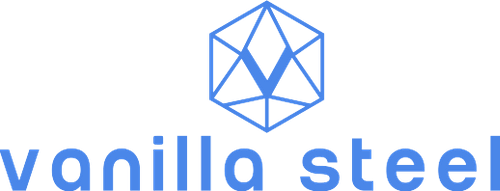
Around 15 European steel suppliers, including a major Czech Republic mill, have signed up to auction their excess steel via a digital platform, in an initiative arising out of the COVID-19 market crisis, one of the platform’s four founders told S&P Global Platts in an interview.
The platform, Vanilla Steel, aims also to allow mills and processors to auction the use of free production capacity, particularly in the rolling mill area, said co-founder Alexis Ducros.
Carbon and stainless steel flat and long products and tubes are made available on the platform for a four-day period each week at a minimum price and incoterms defined by the supplier, said Ducros, who claims the Berlin-based platform is the only independent venture in Europe offering this kind of service, as mills typically sell their own products.
Highest bids in Euros per metric ton are visible on the platform except in “blind” auctions and so far there have been “a few hundred” customers, mainly traders, service centers and processors. Suppliers and customers are located in 22 countries in western and eastern Europe, including Portugal, Turkey and the UK, said Ducros, naming one supplier mill as Vitkovice, the largest manufacturer of steel plates in the Czech Republic.
“We’re very upstream-oriented, connected to the mills,” Ducros said. While the mills have commercial agreements with the platform, all sales transactions take place outside the platform, directly between supplier and buyer, he added. Access to the platform is free for buyers.
Inventory displayed on Vanilla Steel’s platform is owned by the mills and the average lot sold is a truckload, typically 20 mt- 25 mt. As the platform commands “a huge presence” in Antwerp, material can be sold for port shipment also, according to Ducros.
Constant excess, COVID ‘slow-movers’
While quantities sold are currently relatively low – 1,000 mt in the first four months of the platform’s operation – potential exists for considerable expansion, given that up to 10% of the total production output of the European steel industry could typically be classed as “excess,” according to Ducros, a former investment banker with experience in starting up digital platforms across various industries.
“There has been constant excess material – up to 10% – generated by the steel producers,” Ducros said. “It’s always around but COVID slow-moving material has additionally increased the stock eligible for inventory management. Some mills have been working at less than full capacity. We’re at the beginning of the story: we want to bring more simplicity to the steel world through innovation.”
The EU produced 99.4 million mt of crude steel in the first nine months of 2020, down by 17.9% compared to the same period in 2019, according to the World Steel Association, indicating the EU steel sector is working at considerably below its installed capacity levels.
Excess material includes steel produced with no defined customer, including over-rollings, excess prime and semi-finished products. Ducros notes that basic oxygen furnace mills, used by the majority of European steelmakers, require continuous operation and can’t be turned off when demand slumps.
Excess material can also include “de-classified” material, which may fail a standards test perhaps because of a surface defect such as scratching and for which it may be difficult to define a price outside auction, but which can be re-used, as well as “slow-movers” that need to be sold quickly to free up space and capital for new inventory, Ducros said.
“We’re talking about sustainability and extending the life of steel products,” he said. “You don’t need to scrap everything!”
— Diana Kinch





